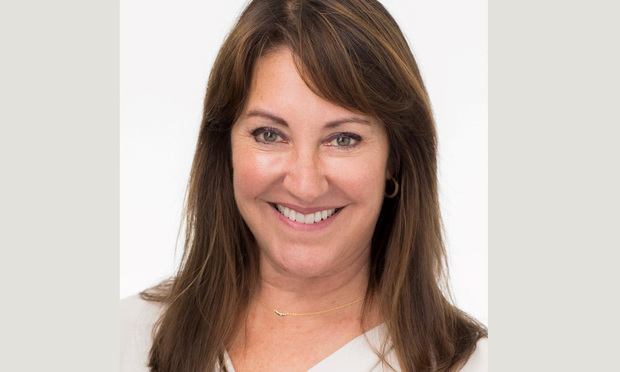Supply Chains Crack Under Pandemic as Corporate Counsel Tangle Over Novel Force Majeure Issues
The force majeure issue is "coming up in every industry, every supply chain—from medical and pharmaceutical to computers to planned special events," said Cristina Shea, a partner in Reed Smith's San Francisco office.
March 20, 2020 at 05:00 PM
4 minute read
 Cristina Shea, a partner at Reed Smith in San Francisco
Cristina Shea, a partner at Reed Smith in San Francisco
Amid the tumult surrounding the coronavirus, lawyers say legal issues related to force majeure contract clauses are reaching a frenzied pitch, and the courts may be asked to resolve novel issues.
"'Force majeure.' I've heard that phrase more in the last three days than in my 30 years of law practice," said attorney Louis Chodoff, who is based in Ballard Spahr's Cherry Hill, New Jersey, office. Since Chodoff is an employment lawyer, one can only imagine what the contract lawyers are hearing.
"We are swamped," Cristina Shea told Corporate Counsel. "Everything is on fire right now." Shea, a partner in Reed Smith's San Francisco office, focuses on representing corporations in disputes with their insurance companies.
Shea said the force majeure issue is "coming up in every industry, every supply chain—from medical and pharmaceutical to computers to planned special events." The phrase means an uncontrollable event that keeps one party from fulfilling a contractual agreement while being legally excused for it.
Shea's office works both on assisting clients who want to enforce contracts and on helping other clients who can't fulfill their obligations. She has been working long hours while sheltering in place in San Francisco, while others in her national law firm are also working from home unless there is a compelling reason not to.
"I would definitely say it's not normal business hours," she said. "It's crisis mode, and clients around the globe in all different time zones need immediate response and attention."
Shea said what is different about the coronavirus crisis from other force majeure events is the sheer scope of it and its ripple effect on supply chains, not only by closed businesses and sick employees, but also by the impact of government travel bans.
"What's different is the continual impact of this," she explained. "Hurricanes and earthquakes seem more limited in geography and time. But this one has a global impact that is spreading across borders and across all industries. And it just keeps going."
Meryl Macklin and Mark Duedall, partners at Bryan Cave Leighton Paisner, said companies and their lawyers are in "uncharted waters" on whether force majeure covers this pandemic. On Friday they held the first of the law firm's several 19-minute webinars dealing with coronavirus legal questions.
Duedall said the first step in assisting clients "is helping them understand the process." He said one must find the relevant contract provisions, extract them and filter them through the law.
Macklin said they have compiled a 50-state survey of differences in force majeure law that shows most states followed a predictable pattern in past cases. A couple states have no laws, she said, and one, New York, is very restrictive in only applying force majeure if the event is listed in the contract clause.
She said companies also can use the doctrine of impracticability or impossibility if there is no force majeure clause in the contract, except in Kentucky, which does not allow the doctrine.
"Right now it's an open question of whether an 'act of God' includes a pandemic," Macklin said. We found nothing [in the cases] that looks like the situation we are in now."
The questions could all just end in massive litigation, "but at the moment I am thinking that likely will not happen," she said.
Not everyone agrees. One is Scott Seaman, a partner in Hinshaw & Culbertson's Chicago office and co-chair of the firm's global insurance services practice group.
Seaman, who primarily represents insurance companies, said he is seeing general counsel being more aggressive about pursuing coverage for their companies' lost business and lost profits.
"I think we are seeing policyholder lawyers staking out positions in their articles and advertisements," he explained, "and we'll see a lot of litigation over business interruption coverage."
Seaman said some legislators have even discussed bills to require insurers to pay for business losses due to the coronavirus. "That could have disastrous consequences for the industry," he said.
The impact of the coronavirus could make the courts swing more liberal when interpreting force majeure provisions, Seaman said. "And, in my opinion, the courts should not allow events to distort contract law right now."
Seaman called the dynamics "very interesting. In terms of how it will play out in the courts, we'll see. But the parties are lining up."
This content has been archived. It is available through our partners, LexisNexis® and Bloomberg Law.
To view this content, please continue to their sites.
Not a Lexis Subscriber?
Subscribe Now
Not a Bloomberg Law Subscriber?
Subscribe Now
NOT FOR REPRINT
© 2025 ALM Global, LLC, All Rights Reserved. Request academic re-use from www.copyright.com. All other uses, submit a request to [email protected]. For more information visit Asset & Logo Licensing.
You Might Like
View All

After Botched Landing of United Airlines Boeing 767, Unlikely Plaintiff Sues Carrier
5 minute read
Inside Track: Why Relentless Self-Promoters Need Not Apply for GC Posts

Law Firms Mentioned
Trending Stories
Who Got The Work
J. Brugh Lower of Gibbons has entered an appearance for industrial equipment supplier Devco Corporation in a pending trademark infringement lawsuit. The suit, accusing the defendant of selling knock-off Graco products, was filed Dec. 18 in New Jersey District Court by Rivkin Radler on behalf of Graco Inc. and Graco Minnesota. The case, assigned to U.S. District Judge Zahid N. Quraishi, is 3:24-cv-11294, Graco Inc. et al v. Devco Corporation.
Who Got The Work
Rebecca Maller-Stein and Kent A. Yalowitz of Arnold & Porter Kaye Scholer have entered their appearances for Hanaco Venture Capital and its executives, Lior Prosor and David Frankel, in a pending securities lawsuit. The action, filed on Dec. 24 in New York Southern District Court by Zell, Aron & Co. on behalf of Goldeneye Advisors, accuses the defendants of negligently and fraudulently managing the plaintiff's $1 million investment. The case, assigned to U.S. District Judge Vernon S. Broderick, is 1:24-cv-09918, Goldeneye Advisors, LLC v. Hanaco Venture Capital, Ltd. et al.
Who Got The Work
Attorneys from A&O Shearman has stepped in as defense counsel for Toronto-Dominion Bank and other defendants in a pending securities class action. The suit, filed Dec. 11 in New York Southern District Court by Bleichmar Fonti & Auld, accuses the defendants of concealing the bank's 'pervasive' deficiencies in regards to its compliance with the Bank Secrecy Act and the quality of its anti-money laundering controls. The case, assigned to U.S. District Judge Arun Subramanian, is 1:24-cv-09445, Gonzalez v. The Toronto-Dominion Bank et al.
Who Got The Work
Crown Castle International, a Pennsylvania company providing shared communications infrastructure, has turned to Luke D. Wolf of Gordon Rees Scully Mansukhani to fend off a pending breach-of-contract lawsuit. The court action, filed Nov. 25 in Michigan Eastern District Court by Hooper Hathaway PC on behalf of The Town Residences LLC, accuses Crown Castle of failing to transfer approximately $30,000 in utility payments from T-Mobile in breach of a roof-top lease and assignment agreement. The case, assigned to U.S. District Judge Susan K. Declercq, is 2:24-cv-13131, The Town Residences LLC v. T-Mobile US, Inc. et al.
Who Got The Work
Wilfred P. Coronato and Daniel M. Schwartz of McCarter & English have stepped in as defense counsel to Electrolux Home Products Inc. in a pending product liability lawsuit. The court action, filed Nov. 26 in New York Eastern District Court by Poulos Lopiccolo PC and Nagel Rice LLP on behalf of David Stern, alleges that the defendant's refrigerators’ drawers and shelving repeatedly break and fall apart within months after purchase. The case, assigned to U.S. District Judge Joan M. Azrack, is 2:24-cv-08204, Stern v. Electrolux Home Products, Inc.
Featured Firms
Law Offices of Gary Martin Hays & Associates, P.C.
(470) 294-1674
Law Offices of Mark E. Salomone
(857) 444-6468
Smith & Hassler
(713) 739-1250






